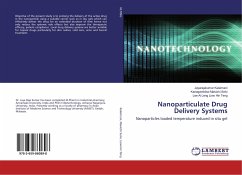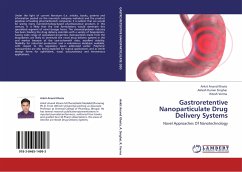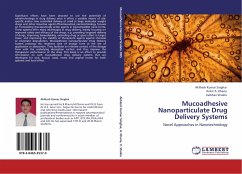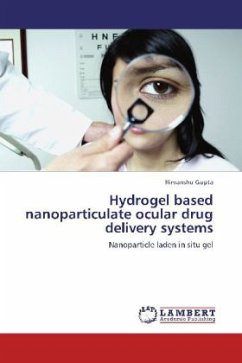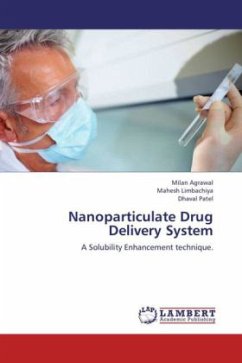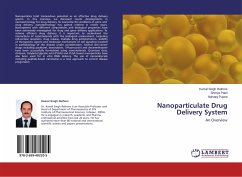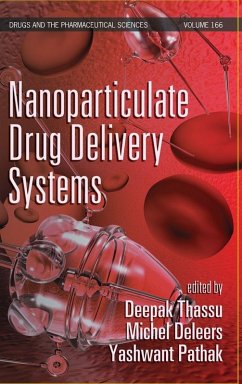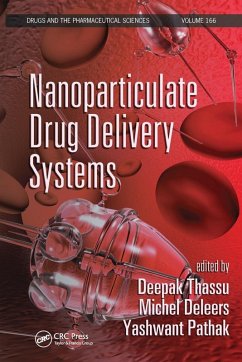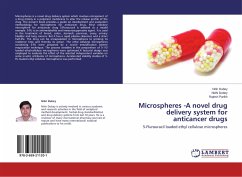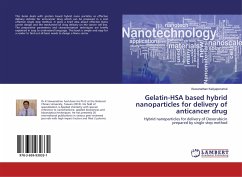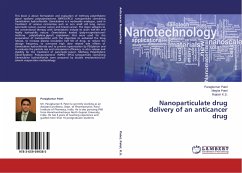
Nanoparticulate drug delivery of an anticancer drug
Versandkostenfrei!
Versandfertig in 6-10 Tagen
47,99 €
inkl. MwSt.

PAYBACK Punkte
24 °P sammeln!
This book is about formulation and evaluation of methoxy polyethylene glycol epsilone polycaprolactone (MPEG-EPCL) nanoparticles containing Gemcitabine hydrochloride. Gemcitabine is a nucleoside analogue, used in treatment of various carcinomas such as non small cell lung cancer, pancreatic cancer, ovarian cancer and breast cancer. The major setbacks to the conventional therapy with Gemcitabine include its short half-life and highly hydrophilic nature. Gemcitabine loaded (poly-e-caprolactone)-methoxy poly(ethylene glycol) copolymers that were used for the preparation of nanoparticles with the ...
This book is about formulation and evaluation of methoxy polyethylene glycol epsilone polycaprolactone (MPEG-EPCL) nanoparticles containing Gemcitabine hydrochloride. Gemcitabine is a nucleoside analogue, used in treatment of various carcinomas such as non small cell lung cancer, pancreatic cancer, ovarian cancer and breast cancer. The major setbacks to the conventional therapy with Gemcitabine include its short half-life and highly hydrophilic nature. Gemcitabine loaded (poly-e-caprolactone)-methoxy poly(ethylene glycol) copolymers that were used for the preparation of nanoparticles with the objectives to sustained the drug release, to increase plasma circulation half life of drug, to reduce the dosage frequency, to overcome high dose related side effects of Gemcitabine hydrochloride and to prevent opsonization by PEGylation and to evaluate the particle size and entrapment efficiency, in vitro release and stability for the treatment of pancreatic cancer. Methoxy Polyethylene Glycol-Epsilone Polycaprolactone (MPEG-EPCL) nanoparticles containing Gemcitabine hydrochloride were prepared by double emulsion(w/o/w)-solvent evaporation methodology.



